What Drives Our Research
Fordham Ohio advocates for policies that advance educational excellence for all Ohio students. High-quality research and analysis—conducted in-house and by external researchers and experts—helps us advance that goal by framing key issues with sound data.

Ohio Education By the Numbers
The Thomas B. Fordham Institute is pleased to present Ohio Education By The Numbers, which is an impartial, fact-based overview of K–12 education in the Buckeye State. We hope these data will inform conversations about improving education throughout the state.

Turning around troubled schools: How Ohio can create a stronger, clearer school improvement program
As Governor Mike DeWine asserted, the state of Ohio has “a moral obligation” on behalf of students to step in when schools are falling short of academic performance standards. Under the Every Student Succeeds Act (ESSA), federal lawmakers have given states the ability to chart their own course when it comes to fixing under-performing schools. Shifting authority—and responsibility—to state policymakers is sensible. But state leaders can’t put school improvement on autopilot and hope for the best.
Our latest report analyzes ESSA’s school improvement requirements and how they have been implemented in the Buckeye State over the years. It also offers eight research-backed recommendations to help strengthen Ohio’s efforts going forward.

Remodeled Report Cards, Remaining Challenges
Fordham's 2012-13 sponsorship annual report addresses our schools’ perspective regarding persistent challenges and how the schools address those challenges.

Parsing Performance - Analysis of Ohio’s new school report cards
This August, Ohio issued for the first time conventional A through F school grades along nine indicators of school performance.
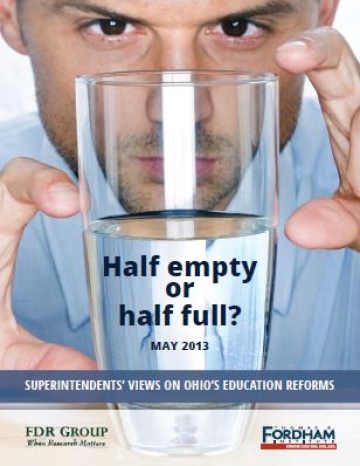
Half empty or half full: Superintendents' views on Ohio's education reforms
This report is based on the responses to an online survey conducted in Spring 2013 with 344 school district superintendents in Ohio. The survey covered seven education policies, specifically: Common Core State Standards, teacher evaluations, the Third Grade Reading Guarantee, open enrollment, A-to-F ratings for schools and districts, individualized learning (blended learning and credit flexibility), and school choice (charter schools and vouchers). It also included several questions on general attitudes towards school reform in Ohio and two trend items. Download today to discover the key findings!

Limitless: Education, The Reynoldsburg Way
The Reynoldsburg City School District, just east of Columbus, is far down the “portfolio management” path – further than probably any suburban school district of its size. This feature article discusses portfolio management and takes readers behind the scenes in Reynoldsburg.
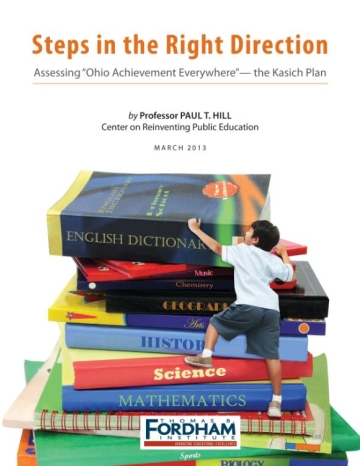
Steps in the Right Direction
Dr. Paul Hill evaluates Governor John Kasich's education budget proposal.

Needles in a Haystack
Profiles of six public high schools that serve poor and minority students to high levels of excellence.
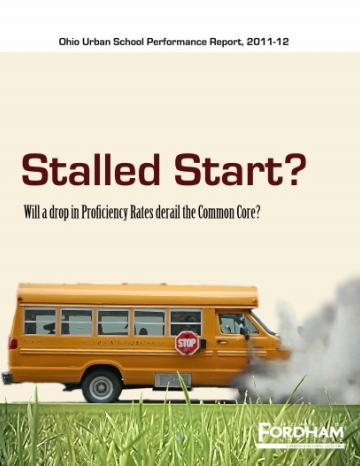
2011-12 Ohio Report Card Analysis
Our annual analysis of school performance in our home state's major urban areas, plus a projection of proficiency rates when the PARCC exams arrive in 2014-15.
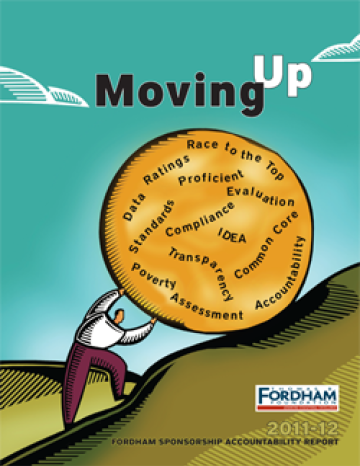
Moving Up: Fordham's 2011-12 Sponsorship Accountability Report
"Moving Up" is The Thomas B. Fordham Foundation's charter school sponsorship accountability report for 2011-12. Through it, we hope to help readers understand the complexities of charter schools and better appreciate the hard work of the teachers, school leaders, and board members who serve not only the schools we sponsor but also the schools around the state and nation that are working to make a difference in the lives of children. This year's report features an in-depth look at the struggles of two Fordham-sponsored schools in Dayton; it is researched and written by former Dayton Daily News reporter and editor Ellen Belcher.
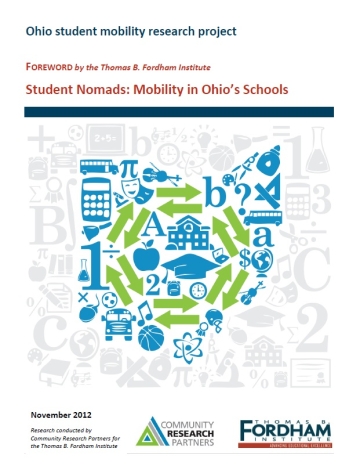
Student Nomads: Mobility in Ohio's Schools
Our data show that students frequently change schools. Should public policies try to slow student mobility? Encourage it? Or make policies better attuned to it?
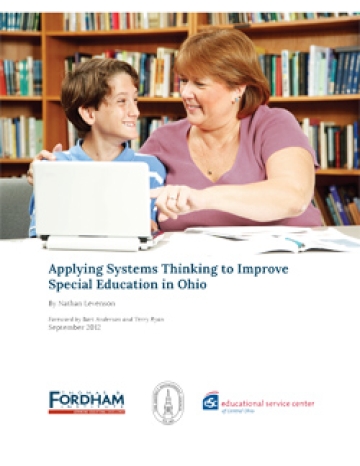
Applying Systems Thinking to Improve Special Education in Ohio
This paper uses systems thinking to provide common sense ideas for saving money while improving special education services to the more than 275,000 Ohio students with special needs.

Future Shock: Early Common Core implementation lessons from Ohio
With the 2014-15 Common-Core transition looming, we wondered: How are Ohio’s educators preparing themselves for this big change? Who is doing this work and what can other schools and districts learn from the early adopters? What are lessons, hopes, and fears facing those on the frontlines who have to lead Ohio’s embrace of significantly more rigorous academic standards?

The Louisiana Recovery School District: Lessons for the Buckeye State
Is it time for Ohio to consider new forms of governance and management for its most troubled schools and districts, and, if so, what might alternatives look like?